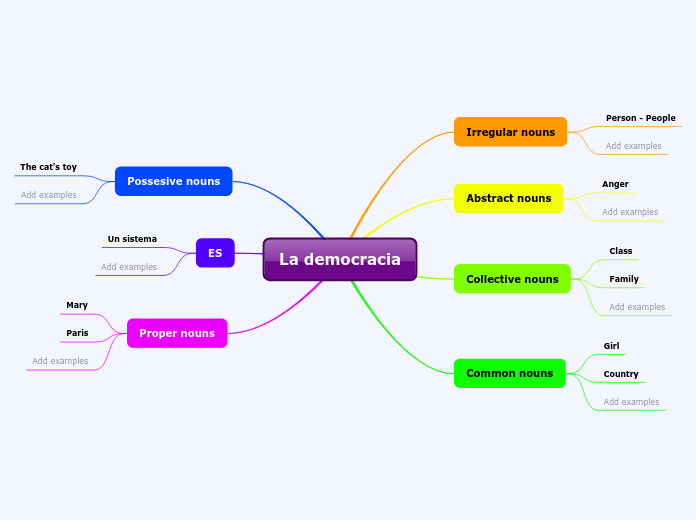作者:Jesus Estrada 4 年以前
299
La democracia

作者:Jesus Estrada 4 年以前
299

更多类似内容
A noun is a word that functions as the name of some specific thing or set of things, such as living creatures, objects, places, actions, qualities, states of existence, or ideas.
Proper nouns are the names of specific people or places. They should always begin with a capital letter.
A concrete noun is a noun that can be identified through one of the five senses (taste, touch, sight, hearing, smell).
Possessive nouns are nouns which possess something, normally another noun.
Common nouns are words for people, places or things that aren’t specific (as opposed to a proper noun which refers to only one person, place or thing).
Common nouns can be countable or uncountable, singular or plural.
A noun which refers to a group of things/people.
A noun which cannot be identified by using one of the five senses (taste, touch, sight, hearing, smell).
Irregular nouns are nouns which don’t follow a spelling pattern when pluralized.